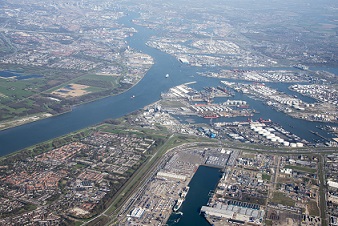Furthering knowledge sharing in policy-making

Related topics
Environment & climate action Innovation Germany Hungary Netherlands Poland United Kingdom Environmentdate: 06/05/2015
Project: Policy science interactions: connecting ...
acronym: PSI-CONNECT
See also: CORDIS
The European Union's Water Framework Directive transformed approaches to water management in Europe: it introduced the notion of management on a river-basin scale. Designated river basin districts do not stop at administrative or political boundaries, but follow the delineation of the river's catchment area as a natural geographical and hydrological unit.
As a result, several regions or even countries have to work together for the management of the basin, since rivers obviously are not bound by regional or national borders. Management must also take into consideration many other aspects, such as land use policies, spatial planning, etc.
Exploring the problem
The involvement of large numbers of actors made water management the perfect testing ground for knowledge brokering instruments (KBIs), which are geared towards the joint exploration of problems and research questions, sharing knowledge, and the design and monitoring of problem-solving interventions.
In the framework of several case studies, the PSI-CONNECT consortium organised workshops and training events involving the relevant research, policy and stakeholder communities on regional, national and EU-levels to experiment with different kinds of KBIs. This included group model building, scenario planning, role-playing games and communities of practice, applied to real-life cases.
Scenario planning, for example, revolves around a key question, which defines the field of focus and the time horizon. Collaboratively, the relevant actors compile an inventory of uncertainties, on the basis of which a scenario matrix and scenario stories are developed. These serve to answer the key question and ultimately develop short-term actions.
PSI-CONNECT used this KBI in an exercise with the Water Board Rivierenland in the Netherlands, for instance. The aim was to improve the knowledge infrastructure as well as cooperation between technical divisions and policy divisions of the water board in the run-up to the drafting of a second River Basin Management Plan (RBMP). The scenarios were designed to answer the following questions: what knowledge is needed at which point in time to prepare the second RBMP? Who can deliver this knowledge? How should this knowledge be organised?
The process was a success. It led to better cooperation between colleagues as well as with external partners and regional stakeholders – representatives of the Dutch Ministry of Infrastructure and Environment, the province of Zuid-Holland, other water authorities from the region, and the Dutch Association of Regional Water Authorities were all involved in the scenario workshop. The case study partners used the workshop results to develop an action plan.
Making the right choice
Because of its anticipatory character, scenario planning is particularly germane to strategic decision-making. Role-playing games, on the other hand, help participants broaden their view to familiarise themselves with different perspectives. Each KBI is better suited to one situation than another and has to be applied in the right way.
“After every workshop, we asked the participants to fill in a questionnaire,” project coordinator Adriaan Slob of TNO (Nederlandse Organisatie voor Toegepast Natuurwetenschappelijk Onderzoek) explains. “From their answers we saw that they appreciated our work a lot. They gained many new insights. Looking at a problem from different perspectives and seeing how people's perceptions vary, you get a bigger picture. This is what the WFD is all about.”
The participants' responses confirmed that real progress was made with regard to the real-life problems to which the KBIs were applied. The experience created new networks and expanded others. And the KBIs are still being used, because the people trained during the project recognised their value for the decision- and policy-making process.
Not a cookbook
The instruments could also easily be transferred to other policy areas such as environmental protection, innovation or healthcare. They can increase understanding of complex connections inside and outside a system, leading to better cooperation between policy-makers, researchers and stakeholders.
To illustrate the usefulness of the different KBIs, PSI-CONNECT compiled a booklet. However, personal experience and guidance are indispensable, says Slob. “People need to know the instruments and how to work with them. It is not a kind of cookbook with recipes that you can simply follow to cook a delicious dish.”
